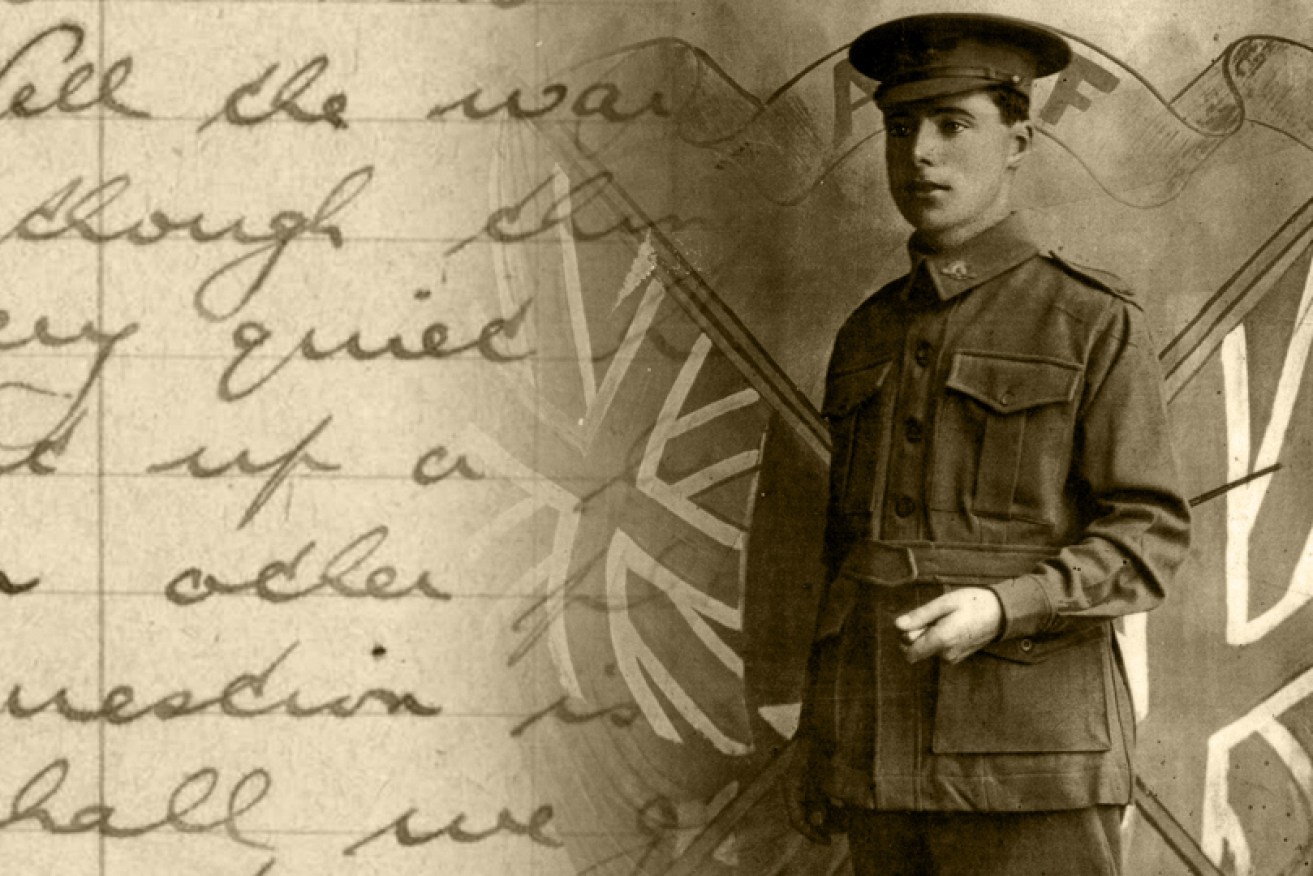Remembrance Day: Haunting diary entries from the day the killing stopped


"When shall we go home?" Sergeant Albert Henshall asks. Photos: Australian War Memorial
Soldiers’ diaries from November 11, 1918 – exactly a hundred years ago – make for haunting reading. Many have no entry for this momentous day, or no mention of the end of the war. Some were too sick or injured, too drunk or jaded. Perhaps the weight of the war wasn’t so easily shifted by the silence of the guns.
Those who did remark upon the peace, did so with a shrug. Lance Corporal George Booley, a Victorian farmer who’d been in the war from the very beginning, and had served at Gallipoli, began his entry for November 11 with his habitual weather report: “Trade winds still on. Armistice signed by Germany. Our group held sports, a pretty tame affair.”
Others take a more melancholy tone. Sergeant Albert Henshall of the 3rd Light Horse Brigade, formerly a clerk from the Victorian town of Hamilton, and who spent four years at war, writes: “Well the war is over and though things were very quiet here, they cut up a bit tough in other places. The question is now, ‘When shall we go home?’”

Lance Corporal George Booley was very matter of fact: “Armistice signed by Germany.” Photo: Australian War Memorial
John Henry Lewellyn Turnbull, a train driver from Geelong, took part in the Gallipoli landing and saw the remainder of the war out on the Western Front. In his diary he tells of the devil-may-care attitude of his fellow veterans, one of whom almost got himself shot for being cheeky.
On November 11, Turnbull’s unit had just pulled off the road to feed their horses and have a lunch of bully beef and hard biscuits “when we saw a motor car coming along flying a staff General’s flag over the bonnet. One of our men had the nerve in stand to the middle of the road and hold up his hand and cry ‘Halt’. … This bird of ours inquired of a General, who was becoming blue … in the face”.
The man asked if “the b__ armistice was signed yet”. When the General advised the armistice had been signed at 11am that morning, “our mate saluted and turned to the driver and ordered him to carry on”.

The cheek of the man. “I might have known you are an Australian,” said the General to the Australian soldier who stopped his car. Photo: Australian War Memorial
Private Verdi George Schwinghammer was the Australian-born son of German parents. They named him after the composer. Schwinghammer was rejected when he first tried to enlist. His second attempt saw him join the 42nd Battalion, famed for its almost two years at or near the front line. During their 647 days of near-continuous combat, the 42nd Battalion engaged in 12 battles, with 450 killed.
Schwinghammer’s diary reveals the mixed emotions and fortunes of soldiers eager to blow off steam and longing for comfort: “On Monday, 11th November, 1918, the day the Armistice was signed, we marched to Alleray for a hot steam bath and on passing through Airaines found all the houses decorated with tricolours and the church bells pealing and the Frenchies running about like madmen.

Private Schwinghammer “could scarcely realise that the war was over,” he wrote in his diary. Photo: Australian War Memorial
“We wondered what was wrong and halted in the main street for a rest. The Captain then told us that he had interviewed the Mayor, who had received a telegram saying that the armistice was to be signed at 11am – it was then 10am. We gave three cheers and could scarcely realise that the war was over …
“Next day we had a holiday from drills to celebrate peace. The bells of the old French church chimed night and day for several days. Most of us attended the Victory Thanksgiving Mass at the Roman Catholic Church.
“Some of the men broke camp and went to the neighbouring cities – some got as far as Paris. Many were pinched and put in the clink [gaol] as they had no leave passes – others were caught and sent back to the Battalion.”
Further on he writes about the war coming alive again in his consciousness.
“The French children had written all over the walls of the village houses with chalk – ‘La Guerre Mapoo’ or ‘La Guerre Fini’ which means ‘the war is over’ or ‘the war is finished’.
“On 10th December we marched with full packs up, through the snow, 24 kilos to the village of Maxent, where we billeted. Our platoon made ourselves comfortable in an old barn and ‘pinched’ some of the Frenchies’ straw for beds and they made a great fuss and put in claims to the military.
“Winter was now upon us and it was piercing cold …. Our billets were overrun with rats. I remember one night when we were all asleep the rats were scampering along the rafters and one overbalanced and fell down on my face. It almost stunned me – stunned the rat also. We killed it and I thought the war was on again and that a bomb had struck me.”









